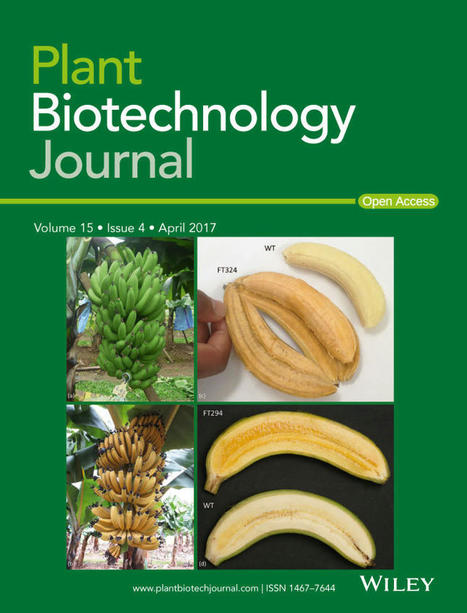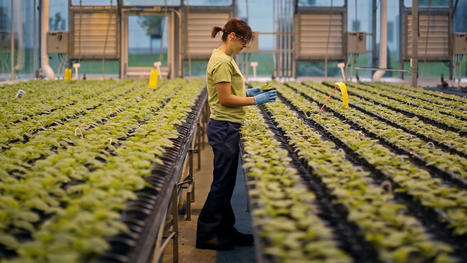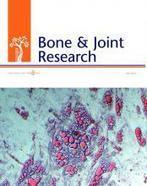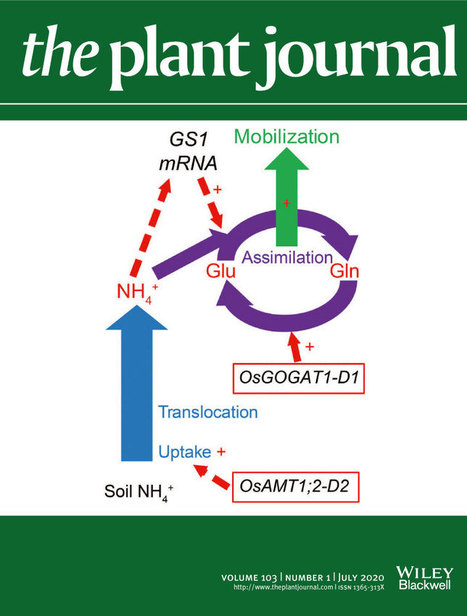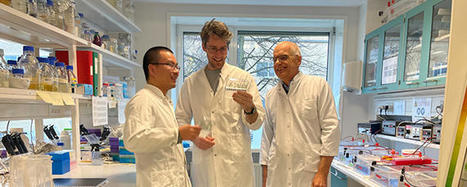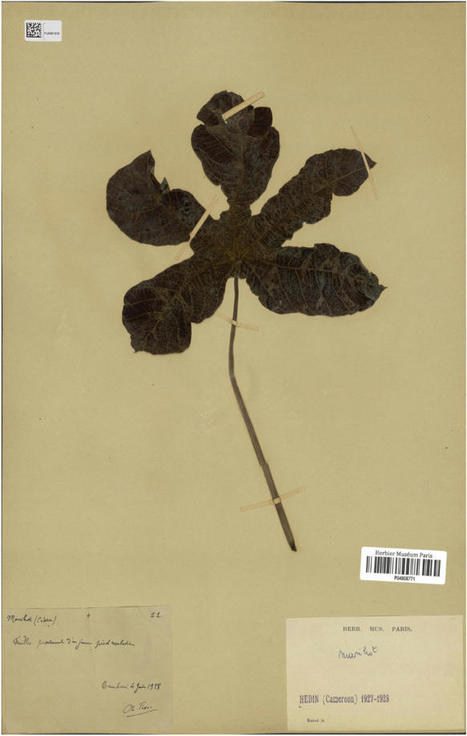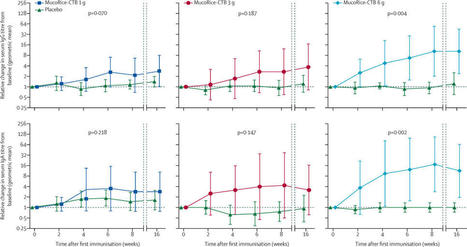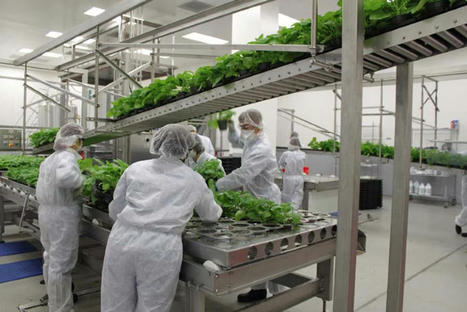 Your new post is loading...
 Your new post is loading...

|
Scooped by
Ed Rybicki
November 24, 2021 6:52 AM
|
Infectious bursal disease virus (IBDV) is the causative agent of Gumboro disease, a severe infection that affects young chickens and is associated with lymphoid depletion in the bursa of Fabricius. Traditional containment strategies are based either on inactivated or live-attenuated vaccines. These approaches have several limitations such as residual virulence or low efficacy in the presence of Maternally Derived Antibodies (MDA) but, most importantly, the impossibility to detect the occurrence of natural infections in vaccinated flocks. Therefore, the development of novel vaccination strategies allowing the Differentiation of Infected from Vaccinated Animals (DIVA) is a priority. Recently, commercial vectored and experimental subunit vaccines based on VP2 have been proved effective in protecting from clinical disease and posed the bases for the development of novel DIVA strategies. In this work an engineered version of the VP3 protein of IBDV (His-VP3) was produced in plants, successfully purified from Nicotiana benthamiana leaves and used to develop an enzyme-linked immunosorbent assay (ELISA) for the detection of anti-VP3 antibodies. The His-VP3 ELISA was validated with a panel of 180 reference sera and demonstrated to have 100% sensitivity (95% Confidence interval – CI: 94.7 - 100.0) and 94.17% specificity (95% CI: 88.4 – 97.6). To evaluate the application of His-VP3 ELISA as a DIVA test, the novel assay was used to monitor, in combination with a commercial ki

|
Scooped by
Ed Rybicki
November 12, 2021 1:20 AM
|
Your current "Scooper" is...Jennifer Stander
Hi to all the curious minds that peruse the internet for interesting things to read and enlighten your mind. I will be highjacking this page for a bit and hope to keep you all entertained! I am Dr Jennifer Stander, formerly a postdoctoral research fellow in Prof Ed Rybicki's research group the Biopharming Research Unit at the University of Cape Town, and presently employed as a scientist by Cape Bio Pharms Ltd. here in Cape Town, South Africa. My research is focused on the development of diagnostic reagents and vaccines in plants as an alternative to mammalian and insect cells, in the hope of making these products affordable for low-to-middle-income countries where the need for these are high. Besides my love for science, I am also a wannabe foodie, an average baker and sewist. I always enjoy a good glass (or two!) of wine and being South African - nothing beats a proper braai.

|
Scooped by
Ed Rybicki
November 11, 2021 7:39 AM
|
Nicotine is the predominant alkaloid in tobacco plants, accounting for ~90% of their total alkaloid content. It is the main addictive substance in cigarettes. Reducing nicotine content in tobacco leaves will aid the development of low-nicotine tobacco products. Prior work has shown that the manipulation of genes involved in nicotine biosynthesis can achieve this purpose (Hidalgo Martinez et al., 2020). Here, we focussed on the long-sought major regulator of nicotine biosynthesis, NIC1 (A).

|
Scooped by
Ed Rybicki
November 11, 2021 7:04 AM
|
Vitamin A deficiency remains one of the world's major public health problems despite food fortification and supplements strategies. Biofortification of staple crops with enhanced levels o

|
Scooped by
Ed Rybicki
September 30, 2021 9:54 AM
|
Summary Two type II-C Cas9 orthologs (Nm1Cas9 and Nm2Cas9) were recently identified from Neisseria meningitidis and have been extensively used in mammalian cells, but whether these NmCas9 orthologs...

|
Scooped by
Ed Rybicki
August 27, 2021 7:19 AM
|
Molecular Farming Means the Next Vaccine Could be Edible and Grown in a Plant -- article related to Science and The Main Page.

|
Scooped by
Ed Rybicki
August 27, 2021 7:04 AM
|
Preventing human immunodeficiency virus (HIV) infection in newborns by vertical transmission remains an important unmet medical need in resource-poor areas where antiretroviral therapy (ART) is not available and mothers and infants cannot be treated prepartum or during the breastfeeding period. In the present study, the protective efficacy of the potent HIV-neutralizing antibodies PGT121 and VRC07-523, both produced in plants, were assessed in a multiple-SHIV (simian-human immunodeficiency virus)-challenge breastfeeding macaque model. Newborn macaques received either six weekly subcutaneous injections with PGT121 alone or as a cocktail of PGT121-LS plus VRC07-523-LS injected three times every 2 weeks. Viral challenge with SHIVSF162P3 was twice weekly over 5.5 weeks using 11 exposures. Despite the transient presence of plasma viral RNA either immediately after the first challenge or as single-point blips, the antibodies prevented a productive infection in all babies with no sustained plasma viremia, compared to viral loads ranging from 103 to 5 × 108 virions/ml in four untreated controls. No virus was detected in peripheral blood mononuclear cells (PBMCs), and only 3 of 159 tissue samples were weakly positive in the treated babies. Newborn macaques proved to be immunocompetent, producing transient anti-Env antibodies and anti-drug antibody (ADA), which were maintained in the circulation after passive broadly neutralizing antibody clearance. ADA responses were directed to the IgG1 Fc CH2-CH3 domains, which has not been observed to date in adult monkeys passively treated with PGT121 or VRC01. In addition, high levels of VRC07-523 anti-idiotypic antibodies in the circulation of one newborn was concomitant with the rapid elimination of VRC07. Plant-expressed antibodies show promise as passive immunoprophylaxis in a breastfeeding model in newborns. IMPORTANCE Plant-produced human neutralizing antibody prophylaxis is highly effective in preventing infection in newborn monkeys during repeated oral exposure, modeling virus in breastmilk, and offers advantages in cost of production and safety. These findings raise the possibility that anti-Env antibodies may contribute to the control of viral replication in this newborn model and that the observed immune responsiveness may be driven by the long-lived presence of immune complexes.

|
Scooped by
Ed Rybicki
July 19, 2021 6:15 AM
|
Long-awaited plant-based vaccine technology could help COVID-19 shots reach developing countries.

|
Scooped by
Ed Rybicki
July 19, 2021 6:09 AM
|
Metabolic engineering of rice endosperm towards higher vitamin B1 accumulation
Rice is a major food crop to approximately half of the human population. Unfortunately, the starchy endosperm, which is the remaining portion of the seed after polishing, contains limited amounts of micronutrients. Here, it is shown that this is particularly the case for thiamin (vitamin B1). Therefore, a tissue-specific metabolic engineering approach was conducted, aimed at enhancing the level of thiamin specifically in the endosperm. To achieve this, three major thiamin biosynthesis genes, THIC, THI1 and TH1, controlled by strong endosperm-specific promoters, were employed to obtain engineered rice lines. The metabolic engineering approaches included ectopic expression of THIC alone, in combination with THI1 (bigenic) or combined with both THI1 and TH1 (trigenic). Determination of thiamin and thiamin biosynthesis intermediates reveals the impact of the engineering approaches on endosperm thiamin biosynthesis. The results show an increase of thiamin in polished rice up to threefold compared to WT, and stable upon cooking. These findings confirm the potential of metabolic engineering to enhance de novo thiamin biosynthesis in rice endosperm tissue and aid in steering future biofortification endeavours.

|
Scooped by
Ed Rybicki
July 19, 2021 6:01 AM
|
Antibodies, antigens and enzymes for replacement therapies and virus-like particles (VLPs) have all been produced successfully in plants as part of the concept of ‘Molecular Farming’ (Lomonossoff and D’Aoust, 2016). There have been several differences noted between plant-expressed proteins, and their equivalents produced in other systems, such as CHO cells, particularly regarding their glycosylation. However, several publications have also indicated that preparations of plant-expressed proteins, including antibodies, VLPs and soluble molecules such as HIV gp120, have a higher proportion of multimers or aggregates than their CHO- or yeast-expressed equivalents (e.g. Mechtcheriakova et al., 2006; Ramessar et al., 2008; Rosenberg et al., 2013). The cause of this has not been investigated in detail because the molecules expressed in the different systems are often not identical and may have been purified to different extents.

|
Scooped by
Ed Rybicki
August 25, 2020 6:48 AM
|
ObjectivesInjectable Bromelain Solution (IBS) is a modified investigational derivate of the medical grade bromelain-debriding pharmaceutical agent (NexoBrid) studied and approved for a rapid (four-...

|
Scooped by
Ed Rybicki
July 14, 2020 7:43 AM
|
Transgenes have become essential to modern biology, being an important tool in functional genomic studies and also in the development of biotechnological products. One of the major challenges in the generation of transgenic lines concerns the expression of transgenes, which, compared to endogenes, are particularly susceptible to silencing mediated by small RNAs (sRNAs). Several reasons have been put forward to explain why transgenes often trigger production of sRNAs, such as the high level of expression induced by commonly‐used strong constitutive promoters, the lack of introns and features resembling virus and other exogenous sequences. However, the relative contributions of the different genomic elements in protecting genes from the silencing machinery and their molecular mechanisms remain unclear. Here, we present the results of a mutagenesis screening conceived to identify features involved in the protection of endogenes against becoming template for the production of sRNAs. Interestingly, all of the recovered mutants had alterations in genes with proposed function in transcription termination, suggesting a central role of terminators in this process. Indeed, using a GFP reporter system, we show that among different genetic elements tested, the terminator sequence had the greatest effect on transgene‐derived sRNA accumulation and that a well‐defined poly(A) site might be especially important. Finally, we describe an unexpected mechanism, where transgenes containing certain intron/terminator combinations lead to an increase in the production of sRNAs, which seems to interfere with splicing.

|
Scooped by
Ed Rybicki
July 3, 2020 4:30 AM
|
Global survey finds ‘extensive’ use of antibiotics in crop production.
|

|
Scooped by
Ed Rybicki
November 24, 2021 2:12 AM
|
Infectious bursal disease virus (IBDV) is the etiological agent of an immunosuppressive and highly contagious disease that affects young birds causing important economic losses in the poultry industry worldwide. We have previously developed a plant-based vaccine candidate for infectious bursal disease (IBD) that is able to protect against infection with IBDV when administered through intramuscular (im) route. Given that oral vaccination is non-invasive and stimulates the immunity of the mucosal gastrointestinal surface, the initial site of contact and entry of IBDV, the aim of this work was to study if our immunogen was also able to elicit a protective immune response when orally administered. We demonstrated that 85% of the animals that received two oral doses of the vaccine formulation and all animals that were orally boosted after an im prime scheme developed virus neutralizing antibodies and were protected against IBDV infection, evidenced by the bursa/body weight (BB) ratio, absence of T-cell infiltration, and low viral load in bursa. Although mild to moderate bursal damage was observed in some of these animals, these lesions were not as severe as the ones observed in challenged control groups, which also presented signs of acute inflammation, bursal atrophy, T-cell infiltration, and absence of viral clearance. These results show that two immunizations with our recombinant immunogen are able to induce a specific and protective immune response in chicken against IBD

|
Scooped by
Ed Rybicki
November 12, 2021 12:32 AM
|
VTT has successfully produced coffee cells in a bioreactor through cellular agriculture. The innovation can help to make the production of coffee more sustainable. The first batches produced by VTT in a laboratory in Finland smell and taste like conventional coffee.

|
Scooped by
Ed Rybicki
November 11, 2021 7:09 AM
|
Researchers from Aarhus University have led a team that has discovered one of the ways legume plants balance nitrogen acquisition from the soil with that from their bacterial symbionts. The work identifies regulation of a key plant hormone, cytokinin, as central to this balance.

|
Scooped by
Ed Rybicki
November 4, 2021 8:53 AM
|
Emerging viral diseases of plants are recognised as a growing threat to global food security. However, little is known about the evolutionary processes and ecological factors underlying the emergence and success of viruses that have caused past epidemics.

|
Scooped by
Ed Rybicki
September 2, 2021 5:20 AM
|
Participants given MucoRice-CTB showed increased CTB-specific serum IgG and IgA antibody
concentrations without inducing serious adverse events, indicating that MucoRice-CTB
could be a safe and potent vaccine to prevent diarrhoeal disease. MucoRice-CTB induced
neutralising antibodies against diarrhoeal toxins in a gut microbiota-dependent manner.
A similar phase 1 trial will be done with participants of other ethnicities to substantiate
our findings.

|
Scooped by
Ed Rybicki
August 27, 2021 7:05 AM
|
Cognitive decline is a common condition from many millions of people suffer. As we age, our bodies go through a myriad of physical and mental changes. One such age-related mental change is cognitive decline. It involves a decline in mental awareness and aptitude.

|
Scooped by
Ed Rybicki
August 27, 2021 7:03 AM
|
The activity of broadly neutralizing antibodies (bNAbs) targeting HIV-1 depends on pleiotropic functions, including viral neutralization and the elimination of HIV-1-infected cells. Several in vivo studies have suggested that passive administration of bNAbs represents a valuable strategy for the prevention or treatment of HIV-1. In addition, different strategies are currently being tested to scale up the production of bNAbs to obtain the large quantities of antibodies required for clinical trials. Production of antibodies in plants permits low-cost and large-scale production of valuable therapeutics; furthermore, pertinent to this work, it also includes an advanced glycoengineering platform. In this study, we used Nicotiana benthamiana to produce different Fc-glycovariants of a potent bNAb, PGT121, with near-homogeneous profiles and evaluated their antiviral activities. Structural analyses identified a close similarity in overall structure and glycosylation patterns of Fc regions for these plant-derived Abs and mammalian cell-derived Abs. When tested for Fc-effector activities, afucosylated PGT121 showed significantly enhanced FcγRIIIa interaction and antibody dependent cellular cytotoxicity (ADCC) against primary HIV-1-infected cells, both in vitro and ex vivo. However, the overall galactosylation profiles of plant PGT121 did not affect ADCC activities against infected primary CD4+ T cells. Our results suggest that the abrogation of the Fc N-linked glycan fucosylation of PGT121 is a worthwhile strategy to boost its Fc-effector functionality. IMPORTANCE PGT121 is a highly potent bNAb and its antiviral activities for HIV-1 prevention and therapy are currently being evaluated in clinical trials. The importance of its Fc-effector functions in clearing HIV-1-infected cells is also under investigation. Our results highlight enhanced Fc-effector activities of afucosylated PGT121 MAbs that could be important in a therapeutic context to accelerate infected cell clearance and slow disease progression. Future studies to evaluate the potential of plant-produced afucosylated PGT121 in controlling HIV-1 replication in vivo are warranted.

|
Scooped by
Ed Rybicki
July 19, 2021 6:11 AM
|
Quebec-based Medicago is transforming the use of plant-based technologies to rapidly develop and produce novel vaccines and therapeutic proteins.

|
Scooped by
Ed Rybicki
July 19, 2021 6:02 AM
|
Global food security is largely affected by factors such as environmental (e.g. drought, flooding), social (e.g. gender inequality), socio-economic (e.g. overpopulation, poverty) and health (e.g. diseases). In response, extensive public and private investment in agricultural research has focused on increasing yields of staple food crops and developing new traits for crop improvement. New breeding techniques pioneered by genome editing have gained substantial traction within the last decade, revolutionizing the plant breeding field. Both industry and academia have been investing and working to optimize the potentials of gene editing and to bring derived crops to market. The spectrum of cutting-edge genome editing tools along with their technical differences has led to a growing international regulatory, ethical and societal divide. This article is a summary of a multi-year survey project exploring how experts view the risks of new breeding techniques, including genome editing and their related regulatory requirements. Surveyed experts opine that emerging biotechnologies offer great promise to address social and climate challenges, yet they admit that the market growth of genome-edited crops will be limited by an ambiguous regulatory environment shaped by societal uncertainty.

|
Scooped by
Ed Rybicki
July 19, 2021 5:59 AM
|
Click on the article title to read more.

|
Scooped by
Ed Rybicki
August 23, 2020 12:30 PM
|
Author summary Over 70% of all known plant viruses are transmitted by specific arthropods, mainly including planthoppers, leafhoppers, aphids and whiteflies. Plant viruses with persistent relationships must overcome multiple barriers.

|
Scooped by
Ed Rybicki
July 7, 2020 7:31 AM
|
Mambalgin-1 is a peptide that acts as a potent analgesic through inhibiting acid-sensing ion channels (ASIC) in nerve cells. Research has shown that ASIC channels are involved in the proliferation and growth of cancer cells; therefore, Mambalgin-1 can be a potential anti-cancer by inhibiting these channels. In the present study, the Nicotiana benthamiana codon optimized Mambalgin-1 gene was synthesized and cloned in PVX (potato virus X) viral vector. The two cultures of Agrobacterium containing Mambalgin-1 and P19 silencing suppressor genes were co-agroinfiltrated into N. benthamiana leaves. Five days post infiltration, the production of recombinant Mambalgin-1 was determined by western blotting. For biological activity, MTT (3(4, 5-dimethylthiazole-2-yl)-2, 5-diphenyltetrazolium bromide) was analyzed for the cytotoxicity recombinant Mambalgin-1 from the transformed plants on nervous (SH-SY5Y) and breast (MCF7) cancer cells. The results showed that the plants expressing open reading frame of Mambalgin-1 showed recombinant 7.4 kDa proteins in the entire plant extract. In the MTT test, it was found that Mambalgin-1 had cytotoxic effects on SH-SY5Y cancer cells, yet no effects on MCF7 cancer cells were observed. According to the results, the expression of the biologically active recombinant Mambalgin-1 in the transformed plant leaves was confirmed and Mambalgin-1 can also have anti-cancer (inhibition of ASIC channels) potential along with its already known analgesic effect. The Mambalgin-1 transiently expressed in Nicotiana benthamiana plant and its anti-cancer effect on SH-SY5Y nerve cancer cells, since ASIC channels are involved in the proliferation of cancer cells, was confirmed.
|

 Your new post is loading...
Your new post is loading...
 Your new post is loading...
Your new post is loading...






